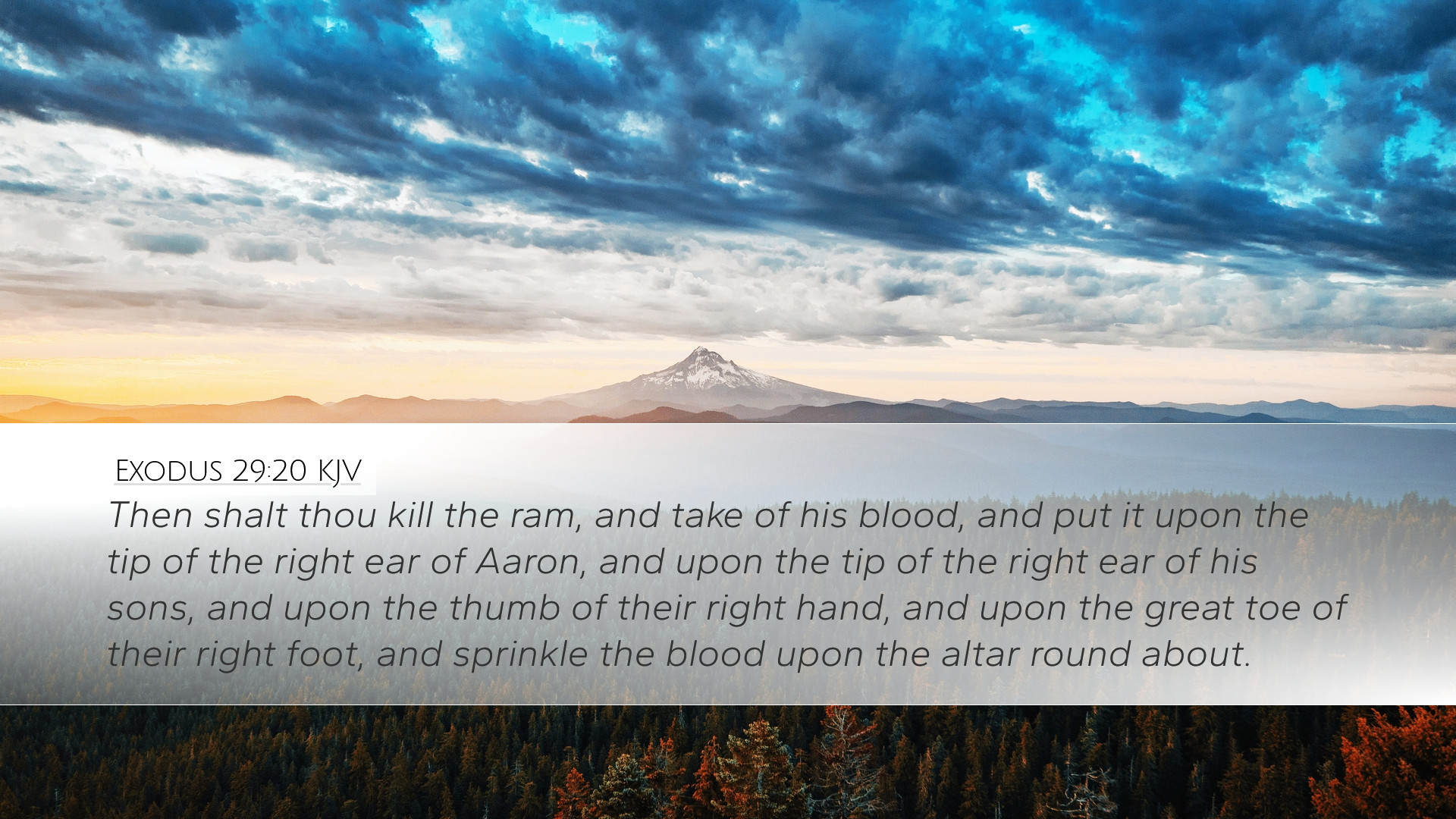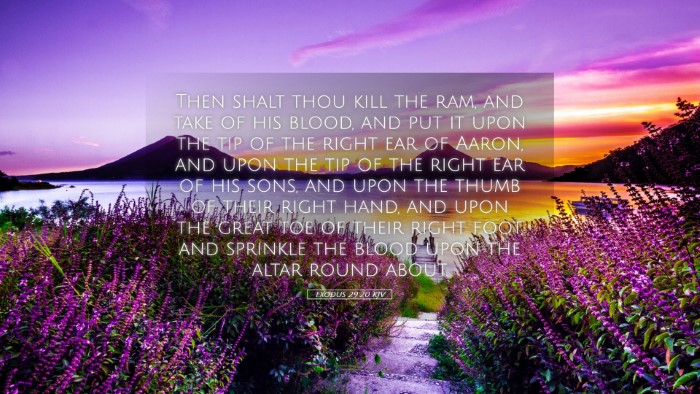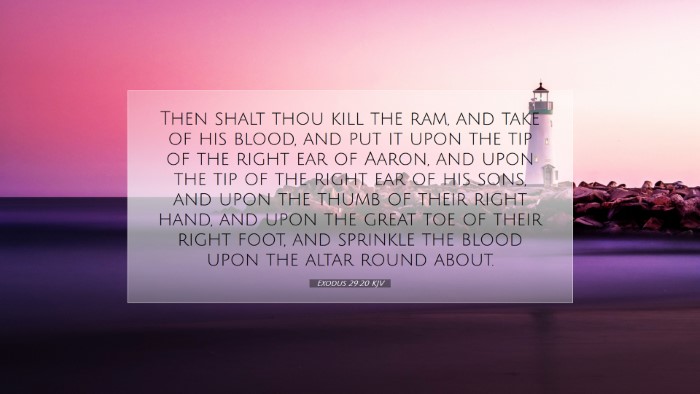Commentary on Exodus 29:20
Verse Reference: Exodus 29:20 - "Then you shall kill the ram, and take some of its blood and put it on the lobe of the right ear of Aaron and on the lobe of the right ear of his sons, and on the thumb of their right hands, and on the big toe of their right feet, and sprinkle the blood all around on the altar."
Introduction
The ceremonial act of consecrating Aaron and his sons as priests is rich with symbolism and significance. Exodus 29:20 represents a pivotal moment not only in the narratives of Israel's priesthood but also in understanding the broader themes of sacrifice, atonement, and divine service in the life of believers. This commentary collates insights from esteemed public domain theologians such as Matthew Henry, Albert Barnes, and Adam Clarke to provide a comprehensive understanding of this verse.
Contextual Background
Before delving into the specifics of the verse itself, it’s imperative to recognize its position within the broader context of Exodus 29. This chapter outlines the detailed instructions given to Moses for the consecration of priests, emphasizing the holiness required for those who minister before God.
The Significance of Blood
Blood is a central theme throughout the sacrificial system. Matthew Henry notes that blood signifies life and its application is a means of atonement, a vital principle in understanding the sacrificial system for both the Israelites and in the broader lens of Christian theology, culminating in the sacrifice of Christ.
The Placement of Blood
According to Adam Clarke’s exposition, the specific application of the blood to the ear, thumb, and toe has profound implications. Each placement signifies the sanctification of the priest’s senses and actions. The ear represents the need to hear God’s voice; the thumb symbolizes the works carried out by the hands; while the toe illustrates the priest's walk and the direction of his life.
Theological Implications
The actions described in Exodus 29:20 underscore the theme of holistic consecration. This idea resonates throughout the Scriptures in both Old and New Testaments, suggesting that every aspect of a believer's life should be under the influence of God's holiness.
Holiness and Service
- Matthew Henry: Emphasizes that the priests were set apart not only for particular duties but also to model holiness for the people.
- Albert Barnes: Highlights that consecration involves both privilege and responsibility—serving in the presence of God and leading the community in worship.
- Adam Clarke: Discusses how the blood signifies both the sacrificial nature of the covenant and the necessity for those serving God to be cleansed and consecrated.
Atonement
The use of blood in this ceremonial act points to the concept of atonement which is foundational in the understanding of salvation. It illustrates the seriousness of sin and the cost of redemption. The act itself was a foreshadowing of Christ’s ultimate sacrifice.
Practical Application for Believers
For pastors and theologians, the implications of Exodus 29:20 extend beyond historical customs to personal application. Each believer is called to be a 'royal priesthood' (1 Peter 2:9) and must consider what it means to live a life consecrated to God.
Living in Holiness
As highlighted by the commentators, living in holiness requires intentionality. Believers are encouraged to devote their ears to hear the Word of God, their hands to the service of others, and their walk to follow Christ’s footsteps. The imagery of blood consecrating these elements further emphasizes that such a life is infused with the sacrifice made by Christ.
Community Implications
The priests represented the people before God, and similarly, church leaders today carry the weight of their community’s spiritual health. This calls for a profound commitment to holiness and integrity in their conduct.
Conclusion
Exodus 29:20 encapsulates key theological truths regarding the nature of sacrifice, the necessity of holiness, and the implications of leadership in God’s community. By examining the insights of notable commentators, we gain clarity on its significance, allowing us to appreciate the depth of God’s design for His priests and, by extension, for all believers. The call to consecration remains ever-relevant, urging us toward a life fully dedicated to God’s glory.


